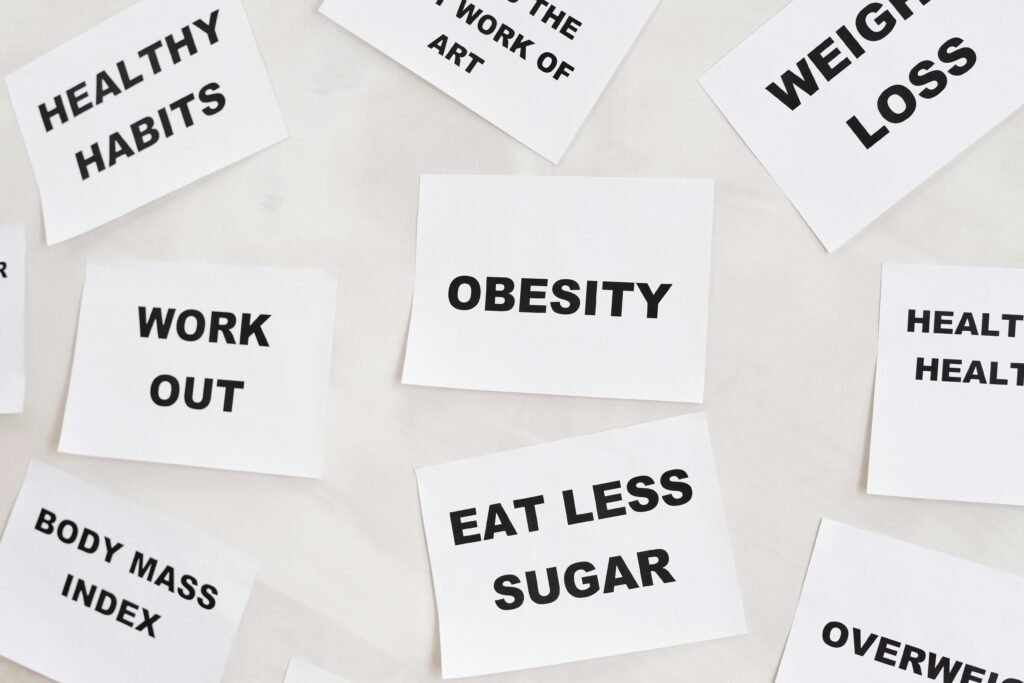When most people think about weight loss, they imagine strict diets, endless gym sessions, and giving up their favorite foods. While nutrition and exercise are critical, the truth is that long-term weight loss has more to do with habits than temporary changes. Small, consistent lifestyle adjustments often make the biggest difference — and unlike crash diets or extreme workouts, they’re sustainable.
If you want to lose weight and keep it off, focus on building healthy routines that fit naturally into your daily life. Here are 10 simple lifestyle habits that can help you shed pounds, improve your health, and feel better without feeling deprived.
1. Drink More Water
Hydration is one of the simplest and most effective tools for weight loss. Many people mistake thirst for hunger, leading them to eat when their body actually needs fluids. Drinking water before meals can also reduce appetite, leading to fewer calories consumed.
Aiming for 2–3 liters of water per day (depending on body size and activity level) helps support metabolism, digestion, and fat-burning processes. Adding lemon, cucumber, or herbs can make it more enjoyable without adding calories.
2. Prioritize Sleep
Sleep is often overlooked in weight loss, but it plays a huge role. Studies show that people who sleep less than 6 hours per night are more likely to gain weight than those who get 7–9 hours.
Why? Poor sleep disrupts hormones that regulate hunger. It increases ghrelin (the hunger hormone) and decreases leptin (the satiety hormone), making you hungrier and more likely to overeat. Sleep deprivation also lowers energy levels, making it harder to exercise and resist cravings.
Making sleep a priority by creating a bedtime routine, limiting screen time, and keeping a consistent schedule can dramatically improve weight-loss efforts.
3. Practice Mindful Eating
In today’s fast-paced world, many people eat on the go, in front of the TV, or while scrolling through their phones. This mindless eating often leads to overeating because the brain doesn’t register satiety signals properly.
Mindful eating means slowing down, chewing thoroughly, savoring each bite, and listening to your body’s hunger cues. By focusing on the meal instead of distractions, you’ll naturally eat less and enjoy food more. A simple trick is to put down your fork between bites to give your body time to register fullness.
4. Cut Back on Sugary Drinks
One of the easiest ways to reduce calorie intake is to eliminate sugary beverages like soda, energy drinks, sweetened teas, and fancy coffee drinks. These provide hundreds of calories with little to no nutrition — and they don’t satisfy hunger.
Switching to water, sparkling water, unsweetened tea, or black coffee can save thousands of calories per week. If you miss sweetness, try adding a splash of fruit juice or using natural flavor enhancers like lemon or berries.
5. Track Your Meals
You can’t change what you don’t measure. Many people underestimate how many calories they consume, especially with snacks, sauces, and portion sizes. Tracking your meals, even for a short time, increases awareness and accountability.
You can use apps, food journals, or even simple photos of meals. The goal isn’t to obsess over every calorie forever but to build awareness of eating patterns and identify areas for improvement. Over time, mindful habits replace the need for constant tracking.
6. Stay Active Daily
Exercise doesn’t have to mean spending hours at the gym. While structured workouts are great, everyday activity also makes a huge difference. This is called Non-Exercise Activity Thermogenesis (NEAT) — the calories you burn through daily movement outside of formal exercise.
Simple ways to boost daily activity include:
- Taking the stairs instead of the elevator
- Parking farther away and walking
- Doing housework or gardening
- Standing or walking during phone calls
- Taking short walking breaks throughout the day
These small movements may seem minor, but combined over time, they can burn hundreds of extra calories per day.
7. Manage Stress
Stress is one of the most underestimated factors in weight gain. High stress levels increase cortisol, a hormone that triggers cravings for high-calorie “comfort foods” and encourages fat storage, especially around the belly.
Incorporating stress-reducing practices into your routine can help control cravings and support weight loss. Options include:
- Meditation or deep breathing exercises
- Yoga or stretching
- Journaling
- Spending time in nature
- Listening to calming music
Finding healthy ways to cope with stress is essential for sustainable weight management.
8. Plan and Prep Meals
Fast food and processed snacks are tempting when you’re busy and unprepared. One of the best habits for weight loss is planning and prepping meals ahead of time.
Meal prepping doesn’t mean eating the same thing every day. It can be as simple as cooking a batch of chicken, chopping vegetables, or packing healthy snacks for the week. Having nutritious food ready makes it easier to stick to your goals and avoid impulsive, unhealthy choices.
9. Avoid Late-Night Snacking
Many people do well with eating during the day but sabotage progress with late-night snacking. This is usually driven by boredom, stress, or habit rather than true hunger. Late-night snacks also tend to be calorie-dense — chips, cookies, or ice cream — which quickly add up.
To break the habit, set a “kitchen curfew” after dinner. If you do feel genuinely hungry later, choose something light and healthy, like fruit, Greek yogurt, or herbal tea. Creating a nighttime routine that doesn’t involve food can also help, such as reading, stretching, or taking a warm bath.
10. Stay Consistent and Patient
Perhaps the most important habit of all is consistency. Weight loss doesn’t happen overnight — it’s the result of small, steady changes over time. Too many people quit when they don’t see instant results, but progress is rarely linear.
Instead of chasing perfection, aim for progress. If you eat a treat or skip a workout, don’t view it as failure. Get back on track with your next meal or activity. Consistency matters far more than short bursts of extreme effort.
How to Put It All Together
Adopting all 10 habits at once can feel overwhelming. Instead, start with 1–2 small changes and build from there. For example:
- Week 1: Drink more water and cut back on soda.
- Week 2: Add in meal prepping and short daily walks.
- Week 3: Focus on better sleep and mindful eating.
Over time, these small adjustments become automatic. As they stack together, they create a healthy lifestyle that supports weight loss naturally.
Conclusion
Weight loss isn’t just about dieting or exercising harder — it’s about the small daily choices that add up over weeks, months, and years. By adopting these 10 simple habits — drinking more water, sleeping better, eating mindfully, staying active, managing stress, and more — you’ll create a foundation for long-term success.
The beauty of lifestyle habits is that they’re sustainable. You don’t have to give up your favorite foods or live at the gym. Instead, you build routines that make healthy choices the default. With patience, consistency, and self-compassion, these small changes can transform not just your weight but your overall health and happiness.



